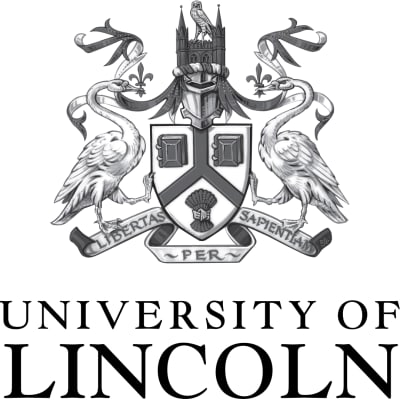
BSc (Hons) Psychology with Forensic Psychology
University of Lincoln

Key Information
Campus location
Lincoln, United Kingdom
Languages
English
Study format
On-Campus
Duration
3 - 6 years
Pace
Full time, Part time
Tuition fees
Request info
Application deadline
Request info *
Earliest start date
Request info
* late applications will be considered if suitable vacancies remain
Discover Lincoln Wherever You Are in the World
Our webinars, subject masterclasses, question and answer sessions, and student panel talks are a great way to discover what it is like to live and study at the University of Lincoln.
Introduction
Psychology brings together the scientific study of behaviour, the mind, and neurophysiological functioning in an attempt to understand what makes us human, and why we think the way we do. The BSc (Hons) Psychology with Forensic Psychology degree at Lincoln aims to provide you with an opportunity to gain an understanding of the core concepts and practices in psychology in general, along with a level of specialised knowledge in forensic psychology.
The course aims to offer a realistic insight into the day-to-day work of a forensic psychologist. Within forensic-related modules, students can gain an understanding of the motives, mind-sets, and behaviours of people who commit various crimes, as well as the assessment and treatment of offence-related risk factors.
Students can also study the processes within the criminal justice system, including courts and post-conviction forensic settings, such as prisons. Teaching on the course includes content from both registered forensic psychologists and expert researchers within the field of forensic psychology.
"This information was correct at the time of publishing (July 2023)"
Admissions
Curriculum
How You Study
On this degree, students have the opportunity to learn through a combination of lecture-based teaching, small group seminar discussions, and practical tasks. This is provided by research-active academics with specialist knowledge in cognitive neuropsychology, vision, and attentional processing, infant cognition and language, mental health, life span development, and social psychology. The course enables students to develop an ability to design, conduct, and analyse independent research projects.
First Year
- Brain, Behaviour & Cognition (Core)
- Conceptual & Historical Issues in Psychology (Core)
- Developing Individual in Society (Core)
- Foundations of Forensic Psychology (Core)
- Research Skills I (Core)
- Research Skills II (Core)
Second Year
- Cognition (Core)
- Developmental Psychology (Core)
- Psychological Assessment & Psychometrics (Core)
- Psychology of Prisons (Core)
- Research Skills III (Core)
- Research Skills IV (Core)
- Social Psychology (Core)
- Understanding Offending Behaviour (Core)
- International Study (Option)†
- Work Experience Year (Option)†
Third Year
- Approaches to Treatment in Forensic Settings (Core)
- Independent Study (Psychology) (Core)
- Risk Perception, Assessment and Management (Core)
- Addictions (Option)†
- Advanced Multivariate Statistics (Option)†
- Applications of Organisational Psychology (Option)†
- Approaches in Coaching Psychology (Option)†
- Approaches in Organisational Psychology (Option)†
- Autistic Spectrum Disorders (Option)†
- Body image and eating disorders (Option)†
- Clinical and Experimental Neuropsychology (Option)†
- Cognitive Neuroscience of Visual Attention (Option)†
- Cross-Cultural Psychology (Option)†
- Developmental Cognitive Neuropsychology (Option)†
- Developmental Psychopathology (Option)†
- Discourse (Option)†
- Fantasy Neuroscience (Option)†
- From Molecules to Mind (Option)†
- Introduction to Cognitive Behavioural Therapy (Option)†
- Investigative and Courtroom Psychology (Option)†
- Occupational Psychology (Option)†
- Patterns of Action (Option)†
- Perception and Visual Art (Option)†
- Psychodynamic Therapy: Theory and Practice. (Option)†
- Psychology of Music (Option)†
- Psychopharmacology: Drugs, Brain and Behaviour (Option)†
- Sleep, Cognition and Well-Being (Option)†
- Sleep, Dreaming and Circadian Rhythms (Option)†
- Solution-Focused Coaching in Practice (Option)†
- Vision Research (Option)†
† Some courses may offer optional modules. The availability of optional modules may vary from year to year and will be subject to minimum student numbers being achieved. This means that the availability of specific optional modules cannot be guaranteed. Optional module selection may also be affected by staff availability.
How You Are Assessed
The aims of the module assessments are to provide a measure of the development and attainment of course outcomes, including the attainment of high-level intellectual skills such as critical analysis, and evaluation.
Accordingly, the nature of assessment varies across the three levels of the course. Assessments at levels one and two are designed to focus on the acquisition and understanding of knowledge and skills. In contrast, level three assessments aim to place far greater emphasis on the ability to apply, analyse, and evaluate knowledge.
Examples of assessment methods that may be used include coursework, such as written assignments, research reports, research diaries, research or clinical proposals, or dissertations; practical exams, such as oral and poster presentations, performances or observations; and written exams (including essay-based exams), such as formal examinations or in-class tests (including multiple-choice tests and short-answer questions).
BPS Accreditation
The course is accredited by the British Psychological Society (BPS) as conferring eligibility for the Graduate Basis for Chartered membership (GBC) the first step towards becoming a chartered psychologist. The BPS is the main professional body representing psychology and psychologists in the UK.
Gallery
Program Outcome
How You Study
On this degree, students have the opportunity to learn through a combination of lecture-based teaching, small group seminar discussions, and practical tasks. This is provided by research-active academics with specialist knowledge in cognitive neuropsychology, vision, and attentional processing, infant cognition and language, mental health, life span development, and social psychology. The course enables students to develop an ability to design, conduct, and analyse independent research projects.
Scholarships and Funding
For eligible undergraduate students going to university for the first time, scholarships and bursaries are available to help cover costs. The University of Lincoln offers a variety of merit-based and subject-specific bursaries and scholarships.
Several scholarship options are available. Please check the university website for more information.
Program Tuition Fee
Career Opportunities
This programme provides Graduate Basis for Chartered Membership of the British Psychological Society (BPS). As a graduate from this degree, you will be well-placed to consider further professional training in psychology This course is designed for those considering a career in forensic settings such as the police, prison, and probation services, or secure health service settings.